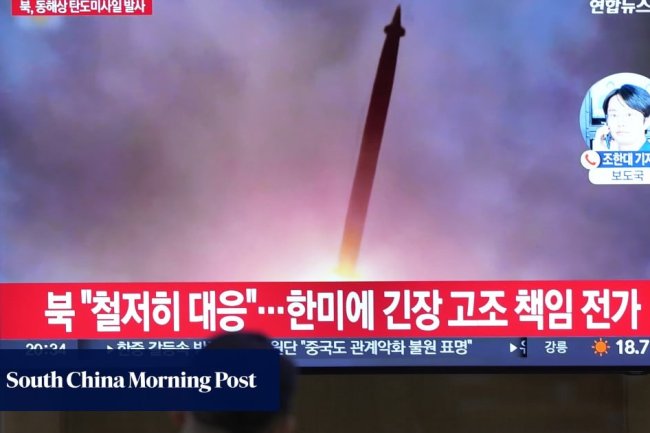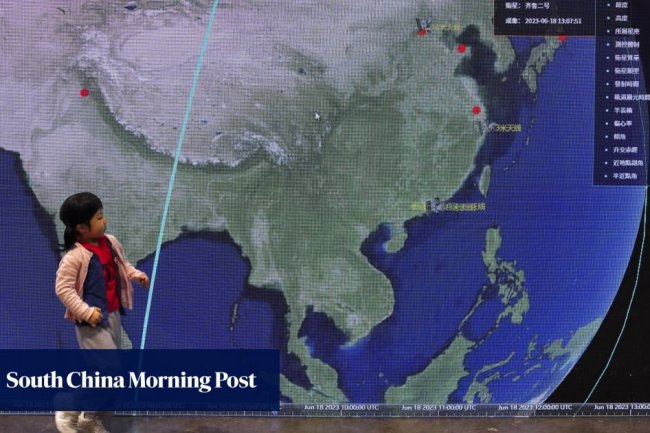Tech war: China-South Korea tech trade slumps in May amid changes in Asia’s semiconductor supply chain landscape
2023.06.15 23:00The once-formidable trade in semiconductors between China and South Korea continued to decline in May, according to the latest data from Beijing and Seoul, amid geopolitical tensions that have changed the chip supply chain landscape in Asia.South Korea’s Ministry of Trade, Industry and Energy on Thursday reported that the country’s information and communications technology (ICT) exports – including semiconductors, displays and smartphones – to mainland China and Hong Kong fell more than 30 per cent in May from a year earlier.Semiconductor shipments from South Korea to China saw a 35.7 per cent year-on-year drop in May, as trade in memory chips plunged 53.1 per cent owing to sluggish demand, according to the ministry.While the ministry did not provide a breakdown by country for its chip exports, it said China accounted for about 40 per cent of South Korea’s total chip exports.That data appeared to match earlier trade figures released by Beijing.China’s chip imports slump


The once-formidable trade in semiconductors between China and South Korea continued to decline in May, according to the latest data from Beijing and Seoul, amid geopolitical tensions that have changed the chip supply chain landscape in Asia.
South Korea’s Ministry of Trade, Industry and Energy on Thursday reported that the country’s information and communications technology (ICT) exports – including semiconductors, displays and smartphones – to mainland China and Hong Kong fell more than 30 per cent in May from a year earlier.
Semiconductor shipments from South Korea to China saw a 35.7 per cent year-on-year drop in May, as trade in memory chips plunged 53.1 per cent owing to sluggish demand, according to the ministry.
While the ministry did not provide a breakdown by country for its chip exports, it said China accounted for about 40 per cent of South Korea’s total chip exports.
That data appeared to match earlier trade figures released by Beijing.
China’s chip imports slumped 19.6 per cent in the first five months of 2023, according to data published by the General Administration of Customs earlier this month, as trade with South Korea and Japan shrank amid an intensified US-China tech war.
China’s total imports from South Korea, meanwhile, saw a 26.7 per cent decrease in the same period, which marked the steepest drop among the major trade partners of the world’s second-largest economy.
The diminishing tech trade, particularly in semiconductors, between the two countries may reflect how China’s standing in the global chip supply chain has been affected after Seoul closely aligned its interests with Tokyo and Washington.
South Korea already forms part of the US government-backed Chip 4 Alliance that includes Japan and Taiwan. Beijing has criticised this alliance as Washington’s plot to exclude China from semiconductor supply chains.
South Korea says chip sector facing ‘all-out war’ amid US-China tensions
Closer ties between South Korea and Japan highlight the increased US pressure on China’s semiconductor industry, after Washington last October implemented updates that further restrict the ability of mainland Chinese firms to obtain advanced chips. In August, US President Joe Biden also signed into law the Chips and Science Act to boost America’s hi-tech manufacturing capabilities.
Some industry analysts, however, see the decreased tech trade between South Korea and China as a result of a slowdown in activity across the global ICT market.
“The decline seems to reflect the broad downturn in the tech cycle rather than US pressure,” said Gary Ng, senior economist for Asia-Pacific at investment bank Natixis. “South Korea’s ICT exports to China and the US both fell considerably in May.”
China’s industrial capacity utilisation rate for electronics also remained low at 74 per cent in the first quarter of this year, “lower than 77 per cent in the same period last year”, Ng said. “It is unlikely that the situation has improved for now. It is more a global problem than export control.”
Chinese ambassador asked Korean lawmaker to include Beijing in US-led chip alliance
The reduced ICT trade with South Korea has come at a time when China is sharpening its focus on improving self-sufficiency in so-called legacy chips, such as those used in cars and home appliances, in the face of US export restrictions covering advanced semiconductors and chip-making equipment.
Data released on Thursday by China’s National Bureau of Statistics showed the country’s chip output rose 0.1 per cent to 140.1 billion units in the first five months of this year. That figure covered all domestic output, including those from foreign-funded plants in China.
The decline in ICT trade with South Korea also showed that the country has not benefited from Beijing’s decision in May to impose a de facto ban on the domestic sale of Micron Technology’s memory chips in critical industries. Seoul has reportedly discouraged memory-chip giants Samsung Electronics and SK Hynix from capitalising on the Micron ban, seeing the move by Beijing as an attempt to drive a wedge between the US and South Korea.
The Biden administration, meanwhile, plans to allow top semiconductor manufacturers from South Korea and Taiwan to maintain and expand their existing chip-making operations in China, the Wall Street Journal reported earlier this week.
What's Your Reaction?






















